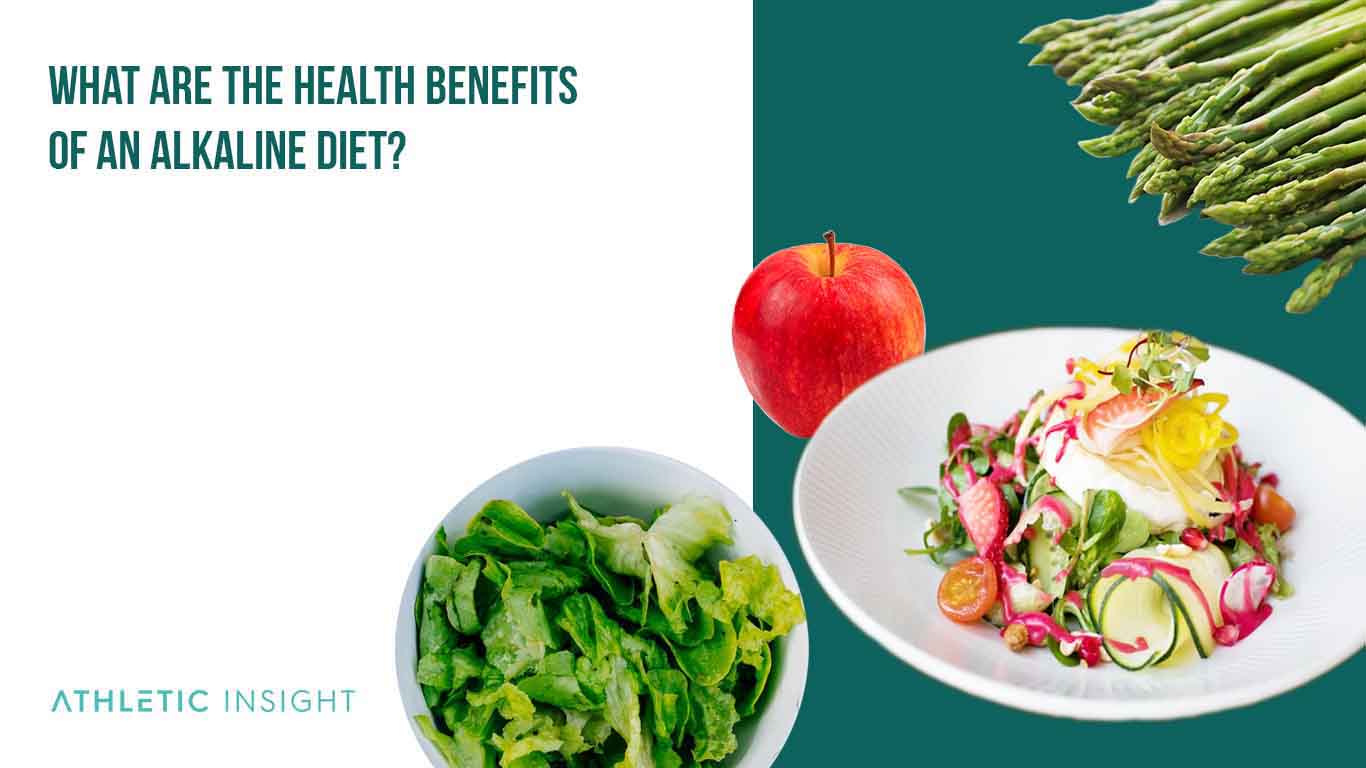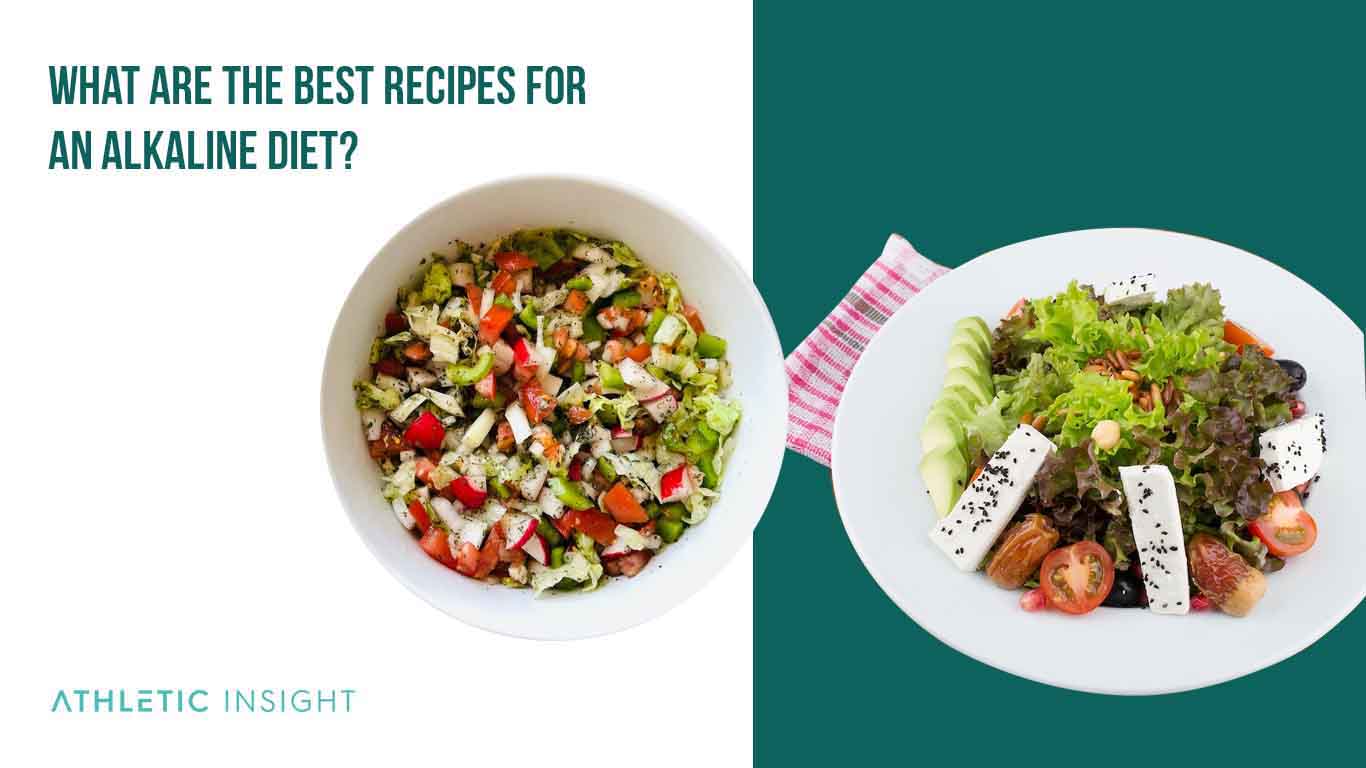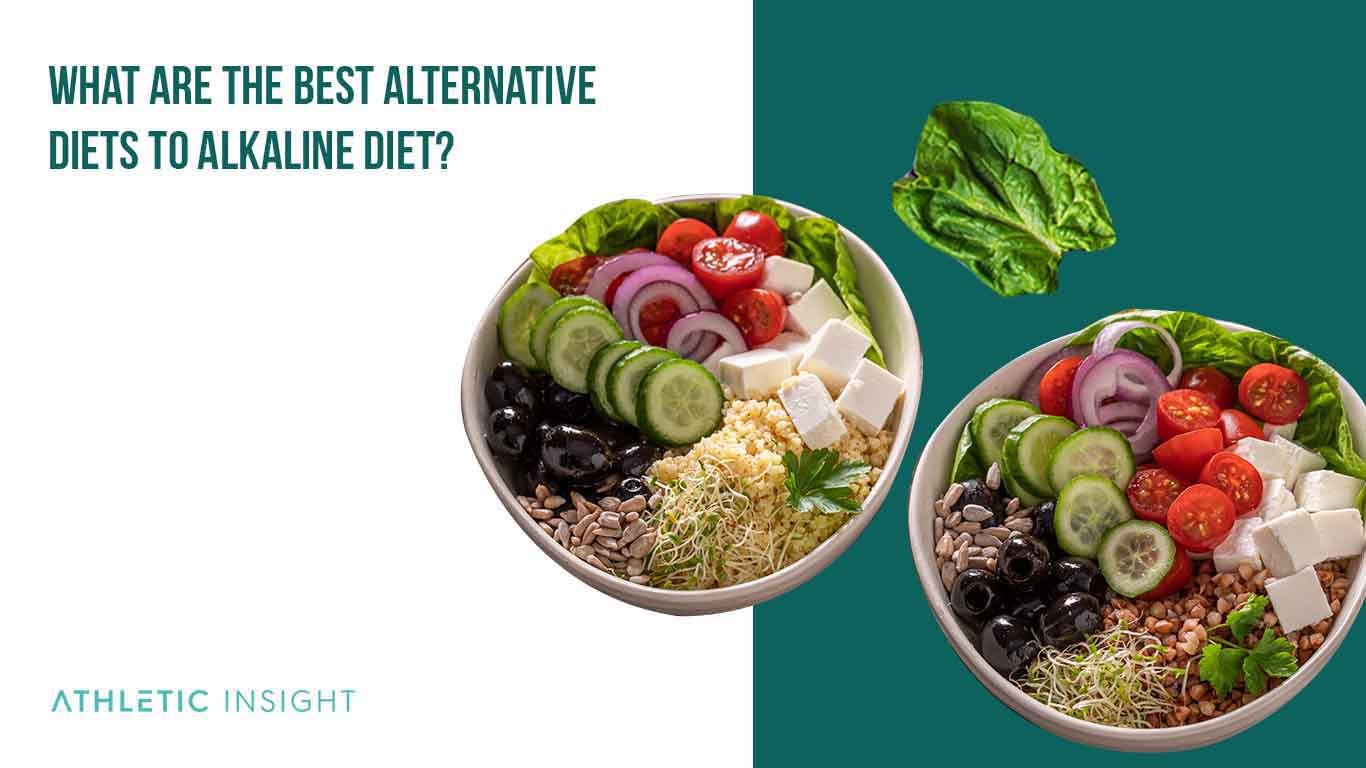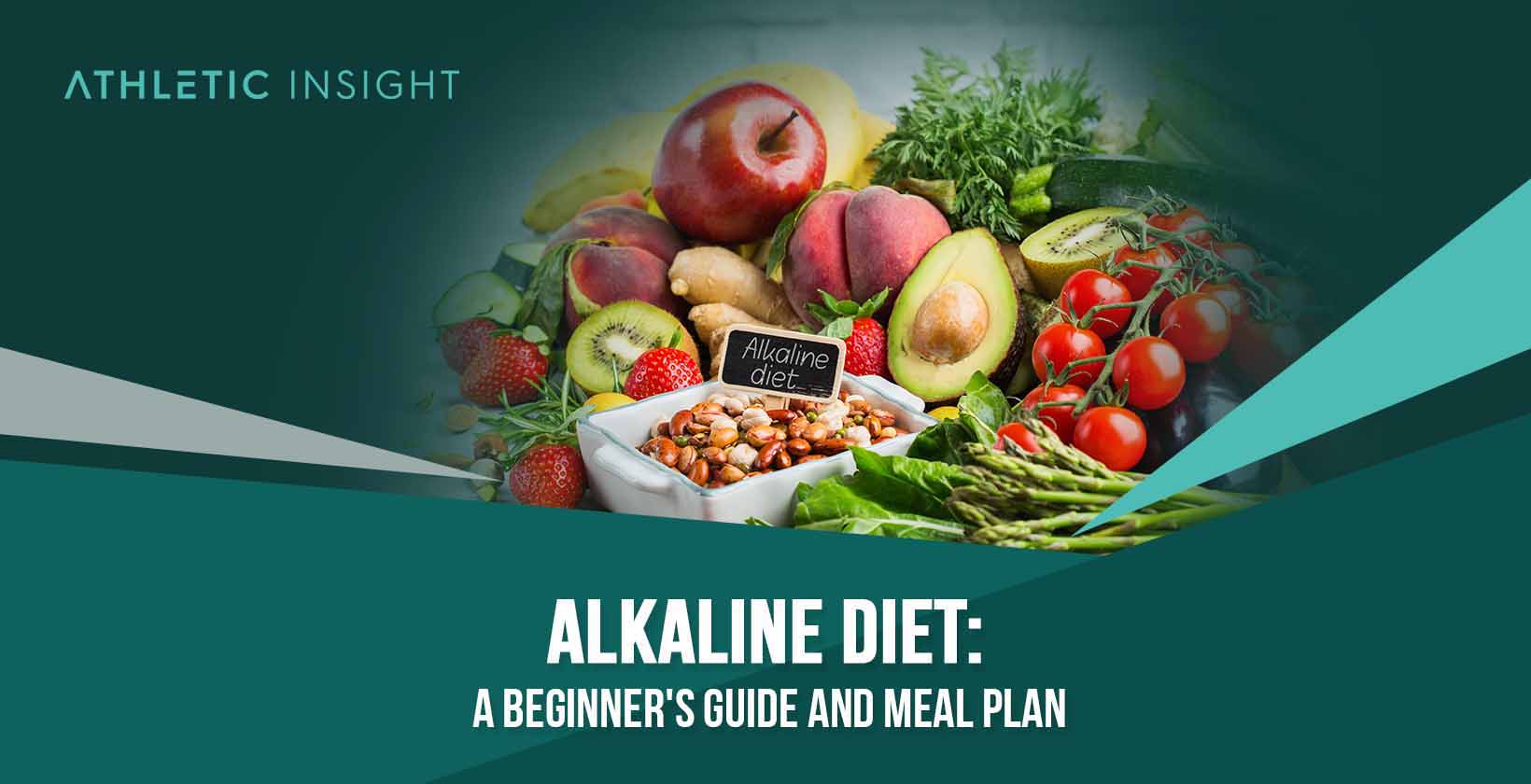An alkaline diet is a diet that is based on the concept that all foods have an acidic or alkaline effect on the body and that by eating more alkaline foods and fewer acid-forming foods, we can improve our health. The idea behind this diet is to increase the pH value of the body from acidic to alkaline.
An alkaline diet consists of foods rich in vitamins, minerals, and antioxidants. The diet helps maintain the body’s pH balance, preventing disease and slowing aging.
An alkaline diet may be linked to a lower risk of cancer, stronger bones and muscles, lessened joint and back discomfort, facilitated weight reduction, and reversed nutritional shortages. The alkaline ash diet is also known as the pH diet, acid ash diet, alkaline acid diet, and Dr. Sebi’s alkaline diet.
How Does Alkaline Diet Regulate the pH of Your Body?
The alkaline diet is predicated on the idea that changing foods might affect the body’s pH level. The process by which food is transformed into usable energy or metabolism has been likened to a fire. Both processes involve the decomposition of a solid by chemical activity.
Ash is the byproduct of combustion. Like fire leaves a trail of ash, the food someone eats also produces a byproduct called metabolic waste. The acid-ash theory states that exposure to acidic ash increases susceptibility to sickness and disease, whereas exposure to alkaline ash reduces susceptibility.
An Alkaline diet consists of alkalizing foods intending to affect the stomach, kidneys, and blood pH. Once alkaline foods neutralize the stomach, the increased pH affects the kidneys. Urinary acid excretion is essential to the body’s pH balance mechanism. Bicarbonate ions, produced by the kidneys, neutralize acids in the blood, allowing the body to maintain a constant blood pH.
The body’s initial reaction to an alkaline diet may include increased urination as the body tries to excrete acid from the kidneys. Eventually, though, the body will adjust to the diet and the increased pH levels in food.
What Are the Health Benefits of an Alkaline Diet?
There are several suggested advantages of adopting an alkaline diet. The high plant-based content of alkaline diets may account for some effects.

Due to the vital nutrients alkaline diets provide, they slow down the aging process and preserve organ and cellular function. That is why we consider the Alkaline to be amongst one of the best healthy diets.
Read on for more details on how an alkaline diet can help slow down tissue and bone mass degeneration, which can be harmed when excess acidity depletes vital minerals.
- Heart Health with Alkaline Diet
- Inflammation and Pain Reduction
- Cancer Protection
- Muscle and Bone Mass Protection
- Vitamin Absorption
- Immune System Boosting
- Alkaline Diet for Weight Loss
1. Heart Health with Alkaline Diet
An alkaline diet can slow the aging process by reducing inflammation and increasing growth hormone production.
This diet has been demonstrated to protect against common health issues, including high cholesterol, high blood pressure, kidney stones, stroke, and memory loss, and it improves cardiovascular health overall.
2. Inflammation and Pain Reduction
According to research, an alkaline diet has been linked to lessened levels of chronic pain. Back discomfort, headaches, muscular spasms, menstruation symptoms, inflammation, and joint pain have all been linked to persistent acidosis.
3. Cancer Protection
Evidence suggests that cancer cell growth is promoted under acidic conditions. Thus, it is hypothesized that eating more alkaline foods (those with a high pH) and less acidic foods (those with a low pH) may increase the body’s alkalinity and mitigate or eradicate cancer.
It’s essential to remember that these studies are of cancer cells in a petri dish and don’t reflect the nuanced behavior of tumors within the human body. Furthermore, the blood’s pH cannot be altered by eating.
Studies published in the British Journal of Radiology discovered indications that malignant cell death was more likely to occur in an alkaline body. However, the matter remains contentious and has yet to be conclusively established.
An alkaline pH is linked to a decrease in cancer risk through changes in electric charges releasing proteins’ essential components. An alkaline diet has been demonstrated to be more effective for some chemotherapeutic medicines requiring a higher pH and can help reduce inflammation and cancer.
4. Muscle and Bone Mass Protection
Mineral intake is crucial for bone formation and maintenance. Sarcopenia is a condition that causes bones and muscles to weaken. It may be possible to avoid sarcopenia by eating alkalizing fruits and vegetables.
An alkaline diet enhances bone health by promoting healthy calcium, magnesium, and phosphate ratio, essential for bone and muscle development and maintenance.
Additionally, the diet may aid in the creation of growth hormones and the absorption of vitamin D, both of which mitigate many chronic illnesses and protect bones.
5. Vitamin Absorption
Magnesium is essential for dozens of enzymatic reactions and biological activities. Due to magnesium deficiency, many people suffer from cardiac issues, muscular pains, migraines, sleep disturbances, and anxiety.
6. Immune System Boosting
The entire body is negatively impacted when cells are deficient in minerals necessary for waste disposal and adequate oxygenation. When minerals are lost, the body is unable to absorb as many vitamins, and the accumulation of poisons and infections weakens the immune system.
7. Alkaline Diet for Weight Loss
Although fat reduction is not the diet’s primary goal, it is possible to follow an alkaline diet for weight loss. Reducing leptin levels and inflammation by emphasizing alkaline-forming foods and limiting acid-forming foods may facilitate weight loss.
Due to the anti-inflammatory properties of alkaline-forming foods, following an alkaline diet can help restore natural leptin levels, which affect appetite.
Following a keto alkaline diet, high in healthy fats and lower in carbohydrates, is an excellent choice if weight loss is a primary objective.
What Are the Possible Health Risks of an Alkaline Diet?
Some sources suggest an alkaline diet consisting of 80% alkaline and 20% acidic foods. Strict adherence to an alkaline diet may make sufficient consuming quantities of protein, iron, and calcium challenging.
At a cellular level, low protein levels can lead to muscular atrophy. A lack of iron can bring on anemia. Inadequate calcium intake may also be harmful to bones. Other effects include hair loss and a heightened risk of stroke.
How To Do an Alkaline Diet?
The first step is heading to the grocery store to start an alkaline diet. Daily fruit and vegetable intake should be between five and eight servings, emphasizing dark greens and low-sugar fruits like berries, avocados, and citrus.
Choose lean cuts of meat and make lots of variety of animal protein sources over plant-based ones like beans and tofu. To keep blood sugar steady, choose fewer complex carbs. Brown rice and other whole grains should be eaten in moderation.
Fewer calories will be consumed by increasing fruits and vegetables without adding other foods to the diet. Some people can maintain a healthy weight on a diet of only 2000 calories each day, but people have varying caloric requirements. Aim for 1,500 to 2,000 calories per day while following an alkaline diet.
A strict alkaline diet can be followed for one to two weeks. Afterward, eating a balance of alkaline and acidic foods is recommended. A diet that is too restrictive can lead to nutrient deficiencies.
Best practices to follow on an alkaline diet include adding raw fruits and vegetables to every meal and snack. Meatless Mondays can help transition to a diet with more plant-based protein and less meat, mainly processed meats.
Reduce how much processed, canned, and frozen food is eaten. To make water more alkaline, use pH drops, fresh lemon, lime juice, or even baking soda.
What Are the Tips for an Alkaline Diet?
An alkaline diet is a great way to boost energy levels and feel great—but the diet is not always easy. The following tips and tricks can help make the alkaline diet workable.
- Eat more fruits and vegetables
- Eliminate or reduce consumption of sweetened beverages
- Eliminate refined carbs and eat gourds and roots instead
- Drink water with fresh lime or lemon juice
- Include sea vegetables in your diet
- Drink eight cups of mineral water each day
- Eat less animal protein
- Use herbs and spices liberally
- Monitor urinary pH
- Supplement the diet with vitamins and minerals
Who Should Implement an Alkaline Diet?
The alkaline diet is beneficial because it emphasizes consuming natural, unprocessed foods. People who suffer from chronic renal disease may benefit from adopting a low-protein, alkaline diet.
Those at risk of hypertension and stroke may benefit from the alkaline diet because it increases multiple micronutrients, including potassium and magnesium, improving heart health, bone strength, and cognitive function.
What Are the Foods That You Can Eat While on an Alkaline Diet?
The Mediterranean Diet, which has been deemed one of the healthiest eating plans based on studies conducted over the previous 50 years, is quite similar to a diet of alkalizing foods.
Consuming sufficient quantities of alkaline-producing fruits and vegetables can help maintain a healthy protein-to-carbohydrate ratio. The following foods are all alkalizing and can be consumed in moderation daily.
- Fruit
- Unsweetened fruit juices
- Raisins
- Black currants
- Vegetables (especially spinach)
- Potatoes
- Wine
- Mineral soda water
- Soy food
- Legumes
- Seeds
- Nuts
1. Fruit
You can eat all manner of fruits on this diet. Consider eating watermelon, apples, apricots, bananas, and blackberries.
2. Unsweetened Fruit Juices
Replace soda with unsweetened fruit juice that is chock full of vitamins and minerals. Avoid concentrate-based fruit juices as they have added sugar.
3. Raisins
Grapes are a great choice for the alkaline diet, and so are raisins, which are dried grapes.
4. Blackcurrants
These fruits are rich in vitamin C, which gives them great antioxidant properties. They can also be juiced and added to a fruit cocktail.
5. Vegetables (Especially Spinach)
Leafy vegetables are great sources of vitamins. Spinach tastes great in salads and is also a good source of minerals cooked.
6. Potatoes
Sweet potatoes and russet potatoes are great for a healthy serving of carbs and are very nutritious.
7. Wine
If you enjoy a glass of wine with your meal, the good news is that wine can benefit your alkaline diet. Try red wine for the best effects.
8. Mineral Soda Water
As previously mentioned, replacing soda is important for the success of your alkaline diet. Mineral water is a healthy replacement.
9. Soy Food
Tofu and other soy food are cheap and filling. Soy also benefits the body and provides it with carbs for energy.
10. Legumes
Beans and lentils are good sources of protein and can help maintain protein levels on this diet.
11. Seeds
Pumpkin, sunflower, and sesame seeds are great additions to salads and side dishes. They provide much-needed protein and fat.
12. Nuts
Almonds, cashews, Brazil nuts, and walnuts are just a few examples of nuts you can enjoy on this diet. They add fat and maintain balance.
What Are the Foods That You Should Avoid While on an Alkaline Diet?
This diet is focused on alkalizing the body and helping it stay balanced. One of the ways that is accomplished is by eating foods rich in alkaline minerals and avoiding acidic foods.
Here are some foods that should be avoided while on an alkaline diet.
- Meat: Fresh and processed meats like turkey or corned beef. Meats should be avoided on an alkaline diet because they tend to be high in acidity. Ensure any meat eaten is lean and organic to help the body alkalize rather than add more acidity.
- Poultry: Chicken, turkey, and other types of poultry. Poultry is also not suitable for an alkaline diet because it tends to be acidic. Poultry in small amounts should be organic and in free range.
- Fish and shellfish: Oysters, shrimp, and other types of seafood. Fish can be high in acidity, so it is best to avoid it. However, if fish is eaten, ensure it is wild-caught or farmed organically.
- Meat-based ingredients: Beef, pork, chicken, and other types of meat-based ingredients. Meat is not suitable for an alkaline diet because it tends to be acidic. Eat meat in small amounts and ensure it is lean and organic.
- Eggs: Eggs are not good for an alkaline diet because they are high in cholesterol and fat. If eggs are consumed, ensure they are organic, free-range, and hormone-free.
- Dairy products: Milk, cheese, and ice cream. Although dairy products are often touted as a good source of calcium, they also contain other ingredients like fat and protein, which can cause them to be acidic. These foods should be avoided because they are highly acidic, deficient in essential nutrients, or high in sugar, fat, and protein.
What Are the Best Recipes for an Alkaline Diet?
Deciding what an alkaline diet consists of can be overwhelming, especially for newcomers. The good news is that plenty of recipes are available for an alkaline diet, like the following.

- Vegan Breakfast Toast: Vegan morning toast contains healthy ingredients, including chickpeas, spinach, artichoke hearts, and a few spices. Serve on bread, or choose lettuce for a healthier, lower-calorie, and more alkaline option.
- Cauliflower Chicken Soup: Chicken soup cooked from scratch with anti-inflammatory spices, including ginger, cauliflower, black pepper, and turmeric.
- Quinoa Salad: This quinoa salad contains healthy ingredients, including fresh parsley, basil, onions, and olives. It’s a refreshing take on a nutritious midday meal.
- Green Spinach Smoothie: The alkaline-promoting ingredients in this refreshing green smoothie include spinach, peaches, bananas, and cucumbers.
- Chia Seed Pudding: Make chia pudding the night before and have it with fruit the next morning. This delicious breakfast pudding is sweetened with bananas and enlivened with the tartness of blueberries.
What Is a Sample Alkaline Diet Plan?
According to the alkaline diet, foods are classified as alkaline, neutral, or acidic. As part of the diet, participants are encouraged to increase their consumption of alkaline foods while decreasing their intake of acidic ones for the best alkaline body benefits. Although there are numerous variations in the diet, this is just one.
- Day 1: Kale is paired with pesto and avocado, and zucchini is spiralized and topped with roasted vegetables.
- Day 2: Make a salad with fresh and cooked veggies, olive oil, and a big sweet potato with steamed broccoli.
- Day 3: Fruit and vegetable buffet with no limits, red wine and spinach salad, and fruit salad with freshly squeezed lime juice.
- Day 4: Eat unlimited produce, including zucchini in spiral form with marinara sauce and sweet potatoes with a dab of butter.
- Day 5: Eat all the desired fruits and vegetables, along with some soup and a salad made with spinach and vegetable broth and spiralized carrots topped with marinara sauce.
- Day 6: Mix roasted and grilled veggies with finely chopped cauliflower, olive oil, fresh basil, and abundant fresh fruit.
- Day 7: Slice cucumbers, tomatoes, and olive oil, and add a drizzle of lemon juice.
What Are the Facts about the Alkaline Diet?
As with any diet, facts from fiction need to be separated to get a clear picture of the Alkaline Diet and how it can be beneficial. Here are some facts about this diet.
- The alkaline diet is a diet that focuses on eating foods that are thought to help the body maintain an alkaline-friendly pH level.
- This diet is also known as the acid-alkaline diet and the blood pH diet.
- Some believe this diet can help prevent or manage chronic health conditions like osteoporosis, cancer, diabetes, and heart disease.
- While there isn’t much scientific evidence to support the alkaline diet’s use to prevent or manage these conditions, it has some positive health benefits.
- The most notable benefit is that following this diet can help lose weight.
Although many believe that alkaline foods benefit their health, few doctors endorse this view. The alkaline diet spreads the myth that it’s possible to alter blood pH by altering dietary intake. Doctors say that significant shifts in blood pH can be quite dangerous.
An alkaline diet may be suitable for certain conditions like gout and kidney stones, but it’s not likely to have much effect on other illnesses. There is little evidence that alkaline foods can prevent or cure cancer, diabetes, or any other disease.
Dietary changes can affect the pH of saliva and urine. While the pH of these other fluids may shift, blood maintains its steady state pH. An alkaline diet is beneficial because it is low in fat and calories, not because it affects the body’s pH. Eating foods from all food groups has been linked to improved overall health.
Is an Alkaline Diet Considered a Healthy Diet?
An alkaline diet is considered a healthy diet because it encourages healthy eating and discourages the consumption of processed food.
Alkaline diets include many fruits and vegetables, which are rich in antioxidants and vitamins. The alkaline diet encourages eating whole foods over processed ones because they are healthy. However, an alkaline diet can be unhealthy if it’s not balanced with additional proteins.
Is an Alkaline Diet Expensive?
An alkaline diet is feasible if someone is willing to put in the time and effort required for food shopping and preparation. However, for some, the cost may be too great.
Some folks may not be able to afford or have access to whole, healthy foods year-round. Alkaline water is also available and fetches a higher price than regular H2O. These meals are typically more time-consuming and costly to prepare.
What Are the Best Alternative Diets to Alkaline Diet?
The best alternatives to the alkaline diet is the Mediterranean diet and the DASH diet which both still allow for a wide range of foods.

- Mediterranean diet: The Mediterranean diet is one example, as it allows for plenty of fruits and vegetables, whole grains, beans, nuts, and seeds. This diet also encourages moderate amounts of fish and poultry while limiting red meat intake.
- DASH diet: The DASH (Dietary Approach to Stop Hypertension) diet is another healthy eating plan that may be worth trying because it is similar to the alkaline diet. This eating plan focuses on increasing fruit and vegetable intake, reducing sodium intake, and limiting red meat, sugar-sweetened beverages, and sweets.



